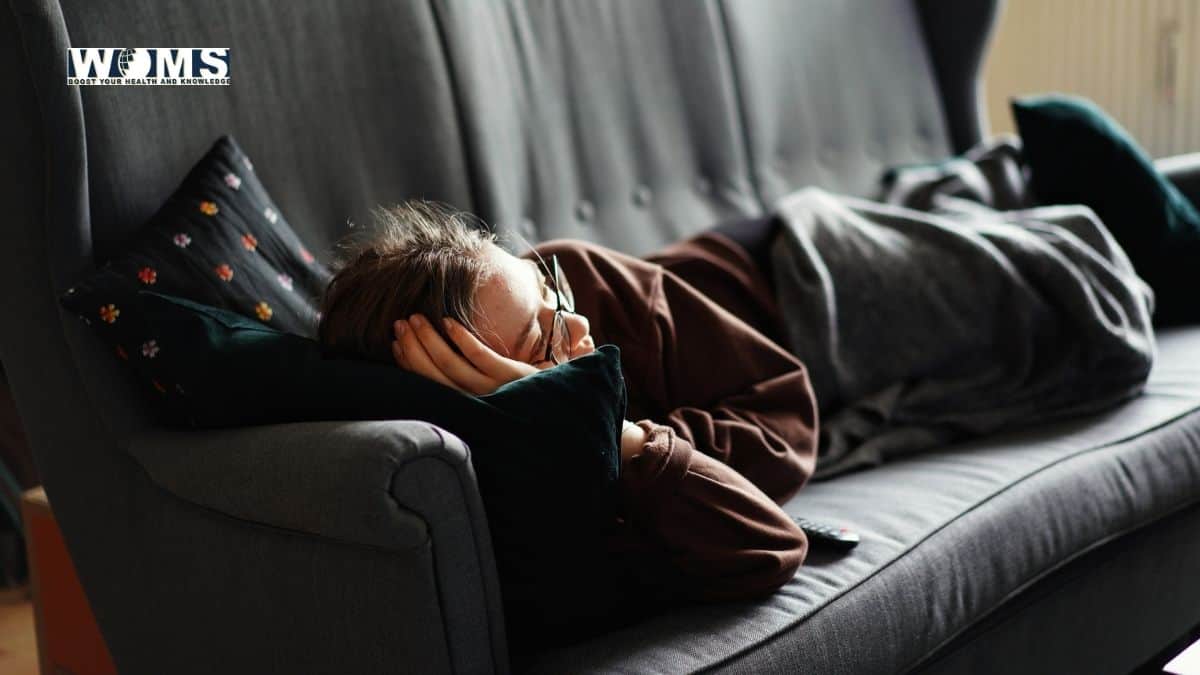Self-help for Insomnia

Living with insomnia SUCKS! Lying awake in bed at night, feeling completely exhausted with nothing else to do but sleep, yet the mind keeps us awake… Insomnia is exhausting and frustrating.
We might turn to our doctors who can point us in the right direction to get some professional treatment for insomnia, but alongside seeking professional help, there are some things we can do to make sure we’re giving ourselves the best chance at getting that important zzzs.
But before we look at what we can do to help ourselves manage insomnia symptoms, let’s make sure we’re really understanding what insomnia is.
What is Insomnia?
Insomnia is a sleep disorder, defined by a lack of sleep, interrupted sleep, short sleep cycles and difficulty falling asleep. Someone with insomnia might find it hard to go to sleep, waking up several times throughout the night. They might lie awake at night unable to sleep, waking up early without being able to fall back to sleep. Insomniacs might still feel tired after waking up, finding it difficult to sleep or nap during the day even when they are tired. They might experience irritability during the day due to the lack of sleep, along with finding it difficult to concentrate and focus.
On average, human adults need between 7-9 hours of sleep per night. If we’re recovering from mental or physical illness, we need more sleep than usual.
If we experience insomnia for a short time, less than 3 months, we call this short-term insomnia. If insomnia lasts longer than 3 months, it’s called long-term insomnia.
While insomnia doesn’t have one precise cause, the most common causes of insomnia are:
- Stress, anxiety, depression or other mental health issues
- Noise or light
- Jet lag and shift work
- Recreational drugs
- Alcohol, caffeine and Nicotine
- Uncomfortable sleeping environment (too hot/too cold)
What is Self-Help for Insomnia?
If we take another look at the insomnia cause list (which is by no means extensive, as there are many other factors that can result in insomnia), there are a few items on that list that we can avoid or improve ourselves from home.
Insomnia Self-Help Dos
Insomnia makes sleeping HARD, which is why it’s so important that we set ourselves up for sleeping success.
Fix your Sleep Environment
First things first, let’s check in with our sleep environment. Our core body temperature has to drop 1-2 degrees Fahrenheit in order for our bodies to initiate sleep. This is why it’s so difficult to fall asleep in hot temperatures.
What sort of temperature is it usually in your bedroom? The ideal temperature for sleep is around 65 degrees Fahrenheit (18.3 celsius). If we can ensure the temperature of the room we’re sleeping in is close to this average, we’ll be encouraging the body into a sleepy state. Make sure that your bedroom looks and feels great and is not cluttered with stuff. Do not use your bed to store your clothes and keep your bedroom organized. If you don’t have enough storage space to hide the mess, go for a divan bed. They are a perfect choice if your bedroom space is limited
How comfortable is your bed? Do you dislike your pillow? We need to ensure that the space you’re sleeping in encourages your personal mental and physical comfort. Change the pillows if you can! Ensure your mattress is comfortable for you. Change the sheets at least once every two weeks. Make the bed every morning, even if it’s a rush job.
Is noise keeping you awake? Try soundproofing your room, or having a conversation with the people you live with about your insomnia to find out if the noisy tasks can be reserved for during waking hours.
Is light keeping you awake? If you’re a shift worker, in particular, it could be that you need to sleep while it’s light outside, or maybe you’re waking up with the light. In this instance, blackout curtains could help a lot! Our body naturally produces and releases a sleepy hormone called melatonin when the sunsets. The body stops producing and releasing melatonin when the sun rises. This is what makes sleep so challenging for shift workers. We’re working against our body’s natural circadian rhythm/sleep-wake cycle. Blackout curtains will help us get to sleep by encouraging the production of our sleepy hormone melatonin.

Put the Screens Away
Screens emit a type of light called blue light. Blue light essentially stops the production of our sleepy hormone, melatonin, as it tricks the brain into thinking it’s still daylight and therefore, not time to sleep yet.
Putting our screens away at least 1 hour before sleep can really help us to naturally fall asleep faster, and can help to improve the quality of our sleep.
Putting the screens away can also help us manage our stress before bed. Many of us work on our phones, and many of us scroll through social media endlessly before switching off. Whatever we do on our phones before bed, it’s important to remember that the content we consume has an effect on our mental health and stress levels. Scrolling through a never-ending feed of perfection can be enough to set off anxiety just before we’re supposed to sleep. Sending some last-minute work emails from bed can stress us out as we start to curate a list of to-dos for the next day.
Charging your phone in another room before bed can be a great way to get into this habit of leaving the phone out of the bedroom. If we chose to use this option though, make sure you know what you’re using instead of your phone alarm to ensure this is a habit you can easily do and easily stick to.
Insomnia Self-Help Don’ts
There are a few things that can inhibit us from falling asleep.
Be Careful with what you Eat
There are many foods that promote sleep, encouraging the body into a sleepy state. There are many foods that inhibit sleep, giving us energy and spiking our blood sugar.
A good rule of thumb when it comes to eating before bed is to try to finish dinner and stop eating around 4 hours before bedtime. This gives the digestive system plenty of time to get started with dinner before sleep.
Avoid Napping
If you’re struggling to get into a sleep routine or struggling to get at least 7 hours of sleep per night, napping can be very tempting.
Napping is great if we have the time during the day to nap, and if we’re still feeling tired by the time it’s night again. The problem for insomniacs is that they nap because they didn’t sleep, and then they frequently can’t sleep because they napped.
It’s important to note that napping does not replace lost sleep. Unfortunately, the body does not work in this sleep-debt way. If we lost sleep, we can nap the next day to make up for a bit of the lost sleep, but it will never be as restorative and beneficial for our health as getting the consecutive 7-9 hours of sleep.
Nap if you need to nap! But prioritise your 7-9 consecutive hours of sleep first.
Avoid Taking Substances
A nightcap might be tempting, especially after a few consecutive nights of insomnia keeping us up. The reality is, while a drink can make us feel sleepy and drowsy, alcohol worsens our quality of sleep dramatically.
If we are already struggling with insomnia, any sleep we are able to get needs to be as restorative as possible. Drinking before bed will lessen the restorative properties of sleep. If you can, avoid drinking before bed, or try allocating one night per week where you lower your alcohol intake. The more alcohol consumed before sleep, the worse the sleep quality will be, so even reducing intake can help to improve sleep.
Substances like marijuana also make us feel drowsy and sleepy, however, marijuana also decreases the quality of our sleep. Try reducing marijuana consumption or allocating one night per week where you sleep sober, building on our sober sleep schedule as we get used to it.
Take-Aways
Insomnia makes sleeping seem impossible, but there are ways that we can prepare the body for sleep, naturally encouraging the body into a sleepy state. Notably, reducing light consumption before bed will help the body into a sleepy state, along with reducing substance intake, checking the temperature of the room you’re sleeping in, and ensuring you’re as mentally and physically comfortable in bed as possible.
When laying in bed unable to sleep, try some deep breathing to remind the body that it is safe to activate the parasympathetic nervous system (rest and digest). Keeping as much ease as possible in your breathing, take a deep breath in through the nose, and slowly exhale through the mouth. With each exhale, visualize yourself letting go of any tension in the body, and in the mind. Repeat this exercise for a couple of minutes.
If you’re concerned about the state of your sleep health, be sure to speak openly with your healthcare provider. From Somnus Therapy, sleep well, and sweet dreams!



